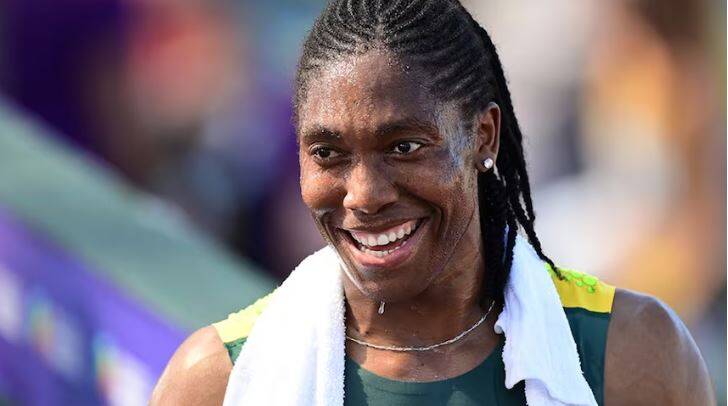
By Kennedy Nalyanya
In a major development, South African track and field icon Caster Semenya has concluded a gruelling, seven-year legal challenge against the controversial sex eligibility rules enforced by World Athletics.
According to the Associated Press (AP), the Olympic champion will not pursue the case further after achieving a "highly successful outcome" at the highest possible court.
"Caster’s legal challenge reached the highest possible court with a highly successful outcome and will not be taken further in the circumstances," Semenya's attorney, Patrick Bracher, confirmed in an email to the AP.
The legal battle centered on rules targeting athletes with Differences in Sex Development (DSD), a condition Semenya was born with. While legally identified as female at birth, Semenya has a medical condition that results in naturally elevated testosterone levels—typically in the male range—due to internal testicles and the absence of a uterus.
World Athletics argued that these increased testosterone levels provide an "unfair advantage" in women's sports, citing the hormone's connection to superior muscle mass and cardiovascular performance. This rule change effectively side-lined Semenya, who was the world’s dominant middle-distance runner, undefeated in over 30 races at the time.
Semenya maintained that the rules infringed upon her human rights, challenging the regulations through three major courts: the Court of Arbitration for Sport, the Swiss Federal Tribunal, and finally, the European Court of Human Rights (ECHR).
While she lost the first two appeals, the ECHR ruled in July that Semenya had not been given a fair hearing at the Swiss tribunal. This ruling essentially vindicated her argument and provided a path to continue the challenge, which she has now chosen to end.
What is the global impact of this debate?
The controversy surrounding Semenya became a flashpoint in the wider debate about fairness and integrity in women's sports.
-
World Athletics itself has since changed its policy, excluding male-to-female transgender athletes who have undergone male puberty from women's competitions.
-
The issue gained prominence across the continent when Semenya won Olympic gold in the 800 meters at both the 2012 and 2016 Games. More recently, Namibia’s Christine Mboma claimed silver in the 200 meters at the 2021 Tokyo Olympics, another athlete whose eligibility was questioned under the DSD rules.
The global attention is intensifying:
-
A recent World Athletics panel in Tokyo noted an "over-representation" of DSD athletes among finalists, with 50 to 60 athletes with male biological advantages reaching the final stage at global and continental championships since 2000.
-
A United Nations report compiled by rapporteur Reem Alsalem last October suggested that nearly 900 biological females missed out on podium finishes due to being beaten by trans athletes. The report stated that over 600 athletes did not medal in more than 400 competitions across 29 sports, impacting over 890 potential medals.
The new International Olympic Committee (IOC) President, Kirsty Coventry, an African Olympic legend, has stressed the IOC's commitment to "protect the female category, first and foremost to ensure fairness," suggesting the committee may take inspiration from World Athletics’ stricter policy. She emphasized that any decision will be "done with medical and scientific research at the core."


Add comment
Comments